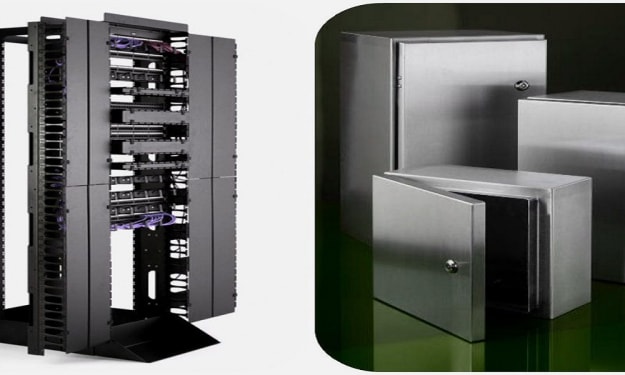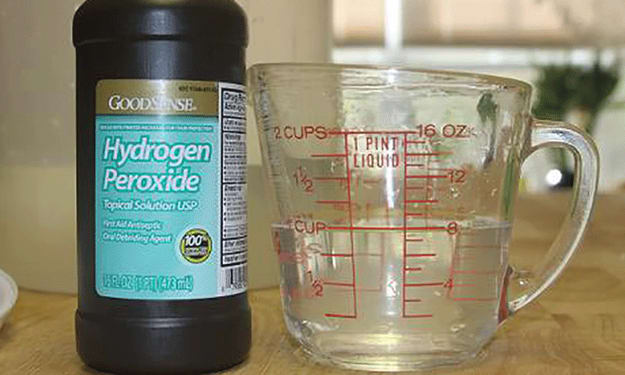Invaluable Advantages of Plastic Cases - Key Insights
Plastic enclosures are preferable to metal ones because they often include built-in cable clamps. These clamps, which typically take the shape of small spring tabs, keep electrical cables in place after they are put into the box.

Protecting electronics using plastic enclosures is the most common and cost-effective solution. Aluminium and steel are traditional materials for electrical enclosures, but the introduction of stronger plastics is starting to change that. For most goods, you may save a lot of money by utilising plastic as the enclosure for your electrical equipment but knowing the unique needs of your project is necessary when picking the most appropriate material. Additionally, plastic enclosures have a longer lifespan than their non-plastic counterparts under normal operational circumstances.
Many electrical enclosures are constructed from various metals, each of which has its own set of desirable features. Nevertheless, these metals don't always provide the functionality needed for a given application. Plastic housings, when used in a particular situation, may significantly improve safety. For this reason, plastic has rapidly overtaken metal as the material of choice for electronic enclosures.
The use of plastic enclosures in manufacturing may be a lot more advantageous than metal, especially in the case of smaller enclosures, such as those designed for use in outdoor situations and if surface-level buttons are a consideration. Plastic is favoured over other metals for use in the construction of enclosures due to its many useful characteristics.
The following are some of the qualities and advantages of plastic that make it an excellent enclosure material:
- A Natural Insulator
Its primary advantage over metal is that it does not conduct electricity, making it ideal for use in electrical enclosures. This is a crucial quality if the equipment will be utilised near water, or if there is a chance of an electrical outage.
One further asset is that plastic enclosures/junction boxes do not have to be grounded. In other words, they may function without being physically connected to the enclosure's box through a ground wire. Metal boxes, on the other hand, are conductive and must be connected to the circuit grounding system through a short cable called a pigtail.
- Slim and Light
Plastic housings provide a second advantage in that they are lightweight.
The light nature of plastic is another area in which it excels. The weight of the enclosure is a crucial factor in certain projects, so if this is a concern plastic is a very appropriate material for your needs.
- Economically Viable
Plastic is a reasonable alternative to die-cast aluminium, steel and other metals used to make electrical enclosures, which is helpful since price plays a significant factor in every electrical device project.
Plastic enclosures are preferable to metal ones because they often include built-in cable clamps. These clamps, which typically take the shape of small spring tabs, keep electrical cables in place after they are put into the box. Many metal boxes, on the other hand, need an additional cable clamp to be fastened first to the cable and then to the box itself. There's no reason not to use a dedicated clamp, nevertheless, the plastic tabs get the job done much more quickly and with less effort.
- Simplified Manufacturing
Plastic cases don't need polishing as metal ones do due to their inherent pliability, which prevents the formation of sharp edges. By itself, this reduces the number of steps required to make the plastic housing without compromising its strength.
- Excellent Resistance to Impact
To prevent additional damage to the system, plastic enclosures can withstand impact while maintaining the same form factor.
- A Non-Magnetic Material
It is possible for electronic enclosures built of magnetic materials to harm the devices they enclose or the devices near them. Using plastic cases reduces the potential for magnetic interference.
- Waterproof
It may be necessary to install electrical enclosures near water, such as a pond, lake or even underwater. These are required by certain companies, but only in very humid environments, such as those that perform operations outside and so need to be shielded from snow and rain, or those that include water treatment processes in their production procedures. Plastic is preferable to metal in these circumstances because it is both durable and impervious to water and corrosion.
- Adaptability
When compared to many metals, plastic has far less rigidity. As a result, plastic enclosures have advantages over metal enclosures, including the ability to absorb vibrations, shield internal components from damage, and provide greater space savings. A manufacturing facility might potentially use this to accommodate plastic containers in tight spaces formerly reserved for metal containers.
The lightweight nature of plastic makes it a good material for housings that will be raised often or held in hand. Plastic is the superior material for usage in tiny enclosures, especially portable ones.
In Conclusion
ABS (acrylonitrile butadiene styrene), polyester, polycarbonate and many other materials may all be used to manufacture plastic for electrical enclosures. It is an adaptive material with many advantages, as the production and usage can be modified to suit costs, purpose and availability.
About the Creator
William Dow
ERNTEC is a 100% Australian owned and run company which provides enclosure solutions to a variety of industries. It offers enclosure solutions like electrical cabinets and enclosures.






Comments
There are no comments for this story
Be the first to respond and start the conversation.